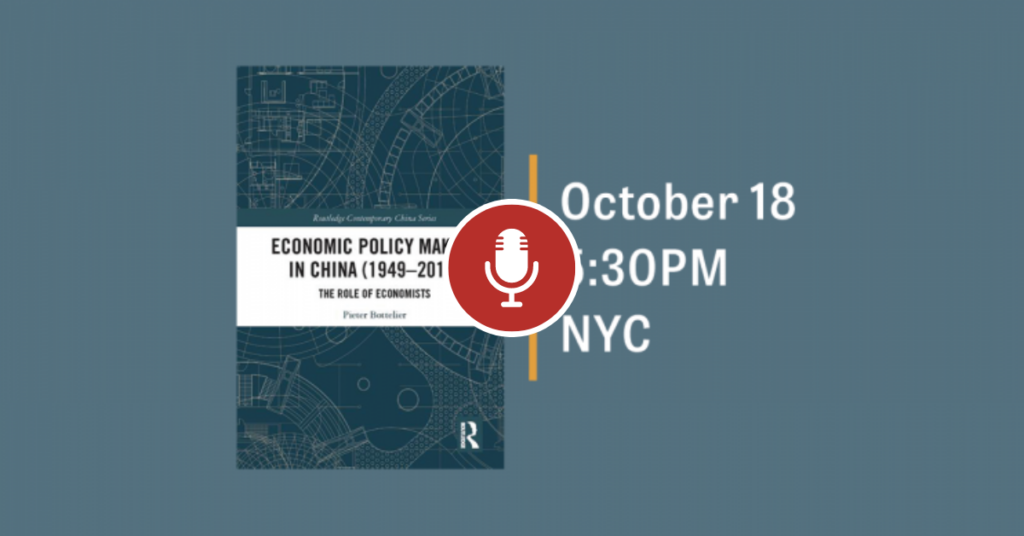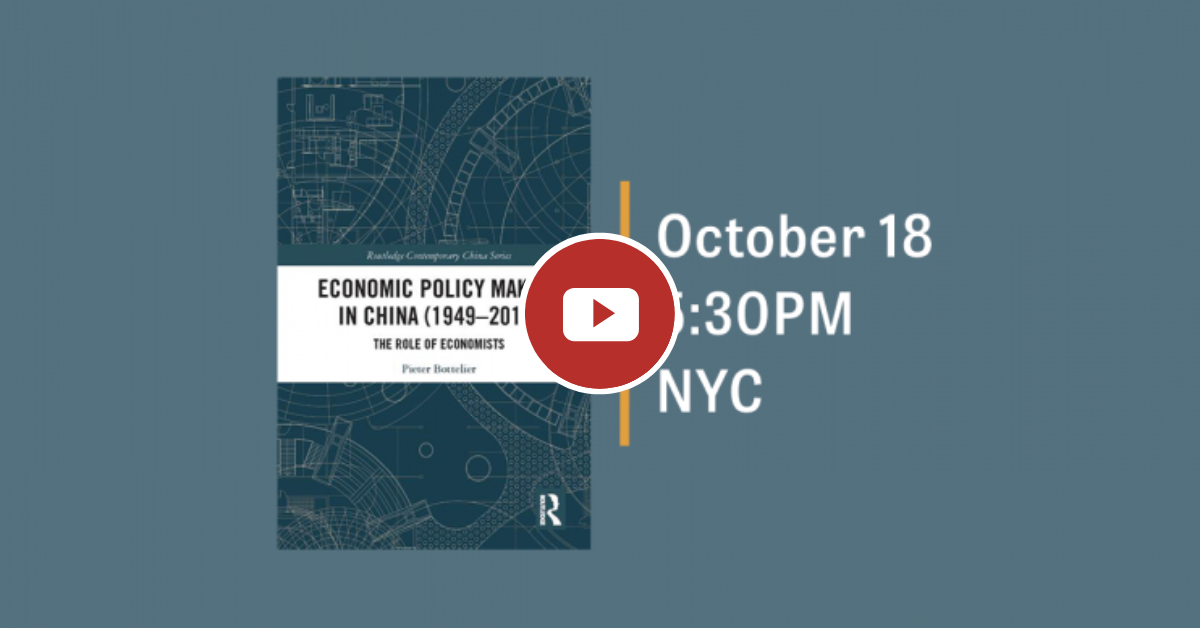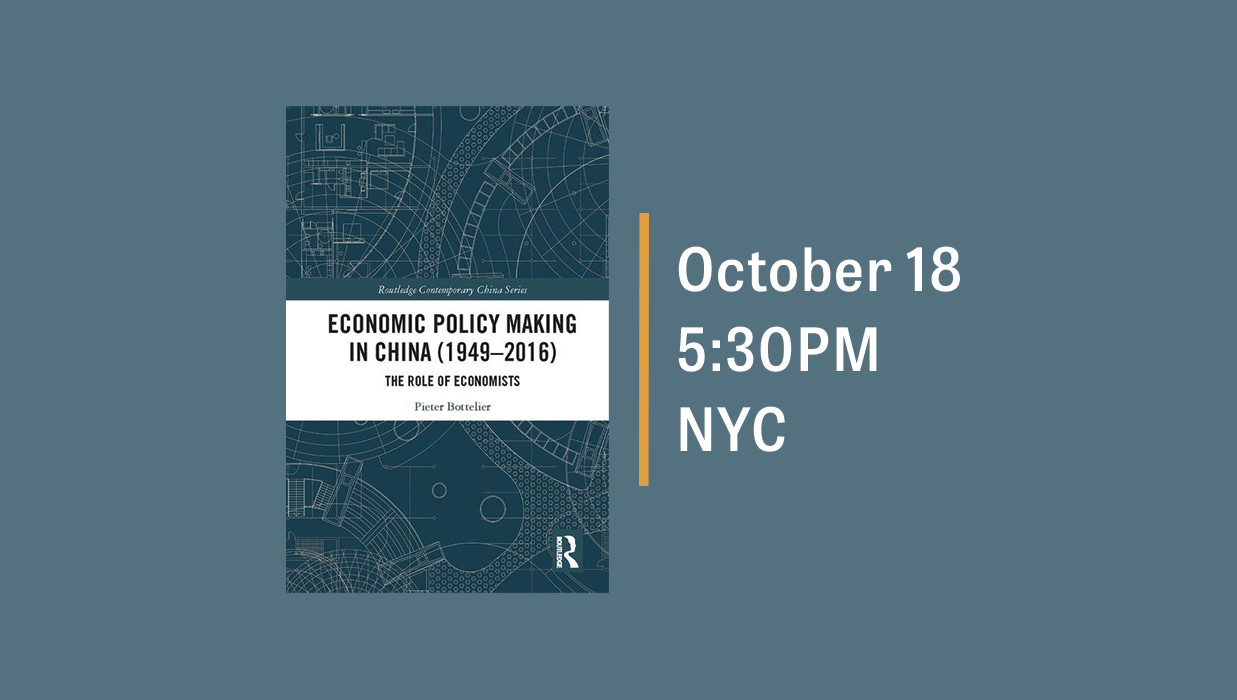With a GDP now rivaling that of the United States, a thriving middle class, and a large global economic network fueled by policies like the Belt and Road Initiative, it is difficult to overstate the extent to which the Chinese economy has changed since the founding of the People’s Republic of China in 1949. Since 1978, ideological shifts have allowed for the expansive economic reforms and liberalization that propelled the Chinese economy to the superpower status it enjoys today. However, politics has always been a factor in determining economic policy. As a result, the role that economists have played in the story of the “China miracle” has not always been clear. In a new book, Economic Policy Making in China (1949-2016): The Role of Economists, China economics scholar and former World Bank official Pieter Bottelier analyzes the contributions made by numerous Chinese economists, and outlines how they adapted to an often shifting political landscape. Mr. Bottelier drew upon his research and years of experience in China to identify the contributions made by China’s economists in transforming China’s economy, and what the recent renewed emphasis on ideology may mean for China’s future economic direction.
Pieter Bottelier is a visiting scholar at the Johns Hopkins University School of Advanced International Studies where he previously served as a senior adjunct professor from 1999 to 2015. He has been a senior advisor to China to The Conference Board (2006-2010), a non-resident fellow at the Carnegie Endowment for International Peace (2009-2012), an adjunct lecturer at the Harvard Kennedy School of Government (2001-2003), and a consultant to the Freeman Chair at the Center for Strategic and International Studies (1999).


